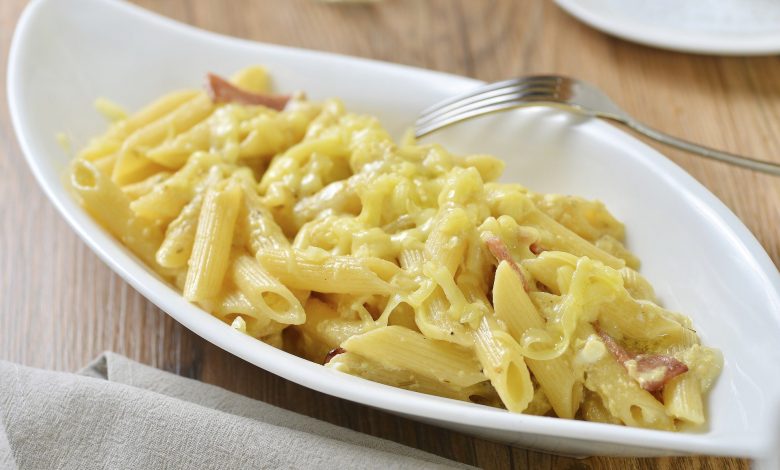
Macaroni Grill: What To Eat And What To Skip For Weight Loss
For time-honored Italian dishes, Macaroni Grill has always drawn diners searching for a bit of comfort and authenticity. Satisfying sauces, good wine, and exquisitely seasoned steaks could make any foodie weak in the knees. Regrettably, where there is comfort, there is high-calorie food unfit for most diet plans. Keeping on track while trying to lose weight is delicate. Keeping on track while dining out at a place like Macaroni Grill can seem as insurmountable as scaling Everest. If you’re watching the numbers on the scale, is it even possible to enjoy a night out at Macaroni Grill? The answer is yes, but you have to use your food choices to your advantage.
When most of us think of losing weight or dieting, there tends to be a steady focus on calories, rather than nutrition and boosting our body’s ability to burn fat. While counting calories is fine and restricted calorie diets do work, they can also leave diners feeling deprived. Deprivation rarely lends itself to long term habits. Feeling as if you’re being cheated out of the experience of enjoying food can make you feel exhausted by the entire weight loss process. To lose weight, even while eating at Macaroni Grill, it is all about using specific ingredients to your advantage, not just looking at the numbers.
What To Eat At Macaroni Grill For Weight Loss

Grilled Mahi-Mahi
If you want to feel a bit more indulgent while on a diet, all while reaping health benefits and burning fat, go for the Grilled Mahi-Mahi with Pomodoro tomatoes and pesto gnocchi. The base of this dish is healthy and diet friendly Mahi-Mahi.
Mahi Mahi
Mahi-Mahi is a serious powerhouse of healthy protein. A simple 6 ounce serving can provide 31.5 grams of protein, yet just 1.2 grams of fat, making it very lean, while still boasting essential amino acids and fat-burning enzymes. Mahi-Mahi is also an immense source of vitamin B, including B-3, B-5, B-6, and B-12. B-3 is essential for heart health and controlling cholesterol in the body. Research also suggests that B-3 can maintain healthy skin, support brain function and prevent joint issues, such as arthritis.
These are all good things, but what about weight loss? That’s where B-5 comes into play. B-5 helps make blood cells and can convert food into energy. It is also a known metabolism booster, helping you to burn fat faster and maintaining healthy calorie conversions. B-12 and B-6 are also essential in boosting energy production and burning fat or carbohydrates into energy. Mahi-Mahi is also a key source of potassium, which supports muscle function, and selenium, a powerful antioxidant.
Tomatoes
Though the grilled Mahi-Mahi is a proven fat burner on its own, throw in the tomatoes, and you pack a powerful one-two punch. Tomatoes are a dieter’s best friend. Aside from being full of vitamin C, folate, vitamin K and lutein (a powerful antioxidant), they are also proven fat fighters. Tomatoes are a favorite fat-fighting food among researchers and dietitians because they are known to reduce inflammation in the body and aid with water retention. Tomatoes can also reverse leptin resistance. Leptin is a protein that regulates metabolic rate and appetite, our bodies need Leptin to shed extra weight and keep it off long term.
Pollo Caprese
A dish consisting of grilled chicken breast, mozzarella, pomodorina, and capellini may not scream “diet-friendly,” but if you break down the dish into its individual parts, you’ll find aspects of this under 600 calorie dish that can do your waistline plenty of favors. Let’s start with the grilled chicken.
Grilled Chicken
Chicken has a superior protein content, which plays a crucial role in sustaining our muscles and building strength. Since this chicken dish is grilled, it is free from breading or trans fats that can accumulate during the frying process. The lean protein in chicken is often recommended by macrobiotic nutritionists because it placates hunger longer, while burning fat more completely in the body. Simply swapping out other meat cuts for chicken can help you build lean muscle mass, which is indispensable in keeping your metabolism strong and healthy.
Mozzarella
While mozzarella should only be consumed in moderation, in a single serving size, it can be seriously beneficial to dropping pounds and meeting daily nutritional goals. Aside from being packed with protein (key for lean muscle and metabolism), mozzarella offers a generous source of vitamin B3 or Niacin. Vitamin B3 plays a pivotal role in turning fat into suitable energy. The more energy you have, the more calories you burn. Niacin can also help to control cholesterol and prevent the onset of ailments such as diabetes.
Red Sauce
Finally, you have the tomato-based sauce. While some tomato sauces can be a source of sneaky refined sugars, this one boasts many advantages. Tomato-based sauces are rich in vitamins A, C, and K. Vitamin A helps you to build connective tissues under the skin and can be paramount in maintaining vision. Vitamin C keeps your body metabolizing fats in an efficient manner and absorbing other vitamins and minerals from food sources. Essential components to shedding fat and keeping it off long term. A strong metabolism is one of the greatest assets in losing weight long term.
What Not To Eat At Macaroni Grill For Weight Loss
There are foods that proven fat fighters and foods that are proven, diet saboteurs. Eating out at any chain restaurant, including Macaroni Grill, means avoiding foods with certain ingredients and meals that are prepared in certain ways. At Macaroni Grill, no food is quite as detrimental to diet than the components of the Lasagna Bolognese.

Lasagna Bolognese
Lasagna can be a tempting choice for dieters looking for a little comfort. Unfortunately, the components of lasagna are far from diet-friendly and can actually cause weight gain rather than weight-loss.
Italian Sausage and Processed Meat
To start, Italian sausage, or any processed meats for that matter, should not play a key role in a weight-loss plan. Aside from being high in calories, it is excessively high in fat and saturated fat. According to the US Department of Agriculture, a diet geared for weight loss and health should never include more than 10 percent saturated fat.
Just one pound of sausage can boast up to 41 grams of saturated fat. A recent study by Elsevier Science found that diets rich in saturated fat are more obesogenic than diets with lower saturated fat. Saturated fat results in a higher BMI and overall body-weight. Avoiding foods high in fat, such as Italian sausage, can be a major player in losing weight.
Refined Pastas
Once you get past the Italian sausage, you have the lasagna noodles themselves. Processed or simple carbohydrates, such as lasagna noodles and most refined pasta, digest quickly. The result is a negative spike in blood sugar levels. This is why refined carbohydrates are so high on the hypoglycemic index. These processed foods can also contribute to a build-up of fat around the waistline.
Research shows that when you eat refined carbs, your bloodstream is swamped with sugar. This prompts a major deluge of insulin in the body to eliminate the sugar from the bloodstream. This flood of insulin can bring about feelings of hunger after a meal, ending in cravings for even more refined carbs. Over time, this can lead to overeating, as well as weight gain. Refined carbs also lack any vital nutrients necessary in maintaining a healthy body.
Whole-Milk Cheeses
Finally, you have ricotta cheese. While in moderation, ricotta cheese is perfectly fine, a large serving of lasagna goes well above what is considered a single serving of ricotta. While it does boast some protein, it is also very high in fat and since a majority of the fat in whole ricotta cheese is saturated, it parlays into the issues mentioned above with the sausage.
According to a study published by PLoS One, foods such as ricotta that are high in saturated fat are bad for the waistline and increase the risk of cardiovascular disease by significantly raising cholesterol levels in the blood. Overall, the saturated fat in this lasagna can contribute to weight and is hardly conducive to a healthy diet.



